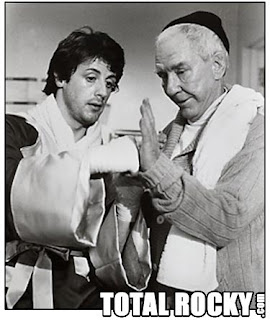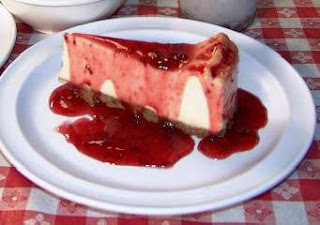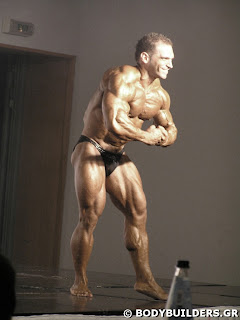
Bodybuilding is not a solo effort by any means. Some might think that because its just you and the weights, and you and your diet, it is all about you. True achievers have people behind them to help them rise. Anyone who thinks he can do it on there own has a big ego and ultimately, his head will get in the way of his success.
When you are training for a competition, there is an entire support team in place that you may or may not appreciate. Roommates, lovers, parents, friends... they all share the same goal that you have, and in little ways, do their part to get you there. Ask yourself some questions and you'll be surprised. How did you learn your training routine? How did you perfect it and develop it? How did you develop your diet? Most likely, from people who know about the best ways to grow your muscles and the foods that provide the fuel for the highest success and they provide the advice willingly and kindly. Even your neighborhood butcher makes the extra effort to give you the cleanest, leanest meat. Some people help more directly. Your training partner pushes you on those days that you just aren't particularly bothered to [more on this topic to come]. As we all know, the fitness sport is extremely trying to your emotions and you often times find yourself mentally exhausted. The support from your close ones, partners, family... it really gets you through at the end of the day. The enthusiasm they share for you and that they cheer you on helps you feel good and the you get pumps the needed motivation into your program. The regulars and owners at the gym where you work out are probably among your biggest admirers, and maybe they open early to help you get your cardio in on time. I remember when I first started, dieting was one of the hardest areas for me, and I actually had my mother lock the kitchen door, hide the key, and on particularly difficult nights, lock me in my room. I know it sounds extreme, but you have to do what you have to do! The trainer is obviously the largest part of your support team because he puts you on the straight road.
One of the biggest fitness challenges that we encounter is our vision of ourselves.
The trainer might not know more than you in terms of muscle development, diets, and routines, but at a certain time when you compete, in the middle of your preparation, you go blind... you become like an adolescent who can't see the progress and your self-image suffers. Like a child with a mother, you need that guidance. Kai Green uses the analogy of the Rocky films, when Micky shouts at Rocky about how to fight when he's in the ring. Of course Rocky knows how to fight, but at that time in the ring, he’s blinded and he needs the extra help. Our trainer is our Micky, because in that moment, when we are getting ready for a show, you need the extra voice and eye to remind you to step forward or back, even though you know it already.
Where is the loneliness in the sport? If you reflect honestly, you will find your road cluttered with people who are following you wherever you want to go.
Peace and Love and big muscles.



















